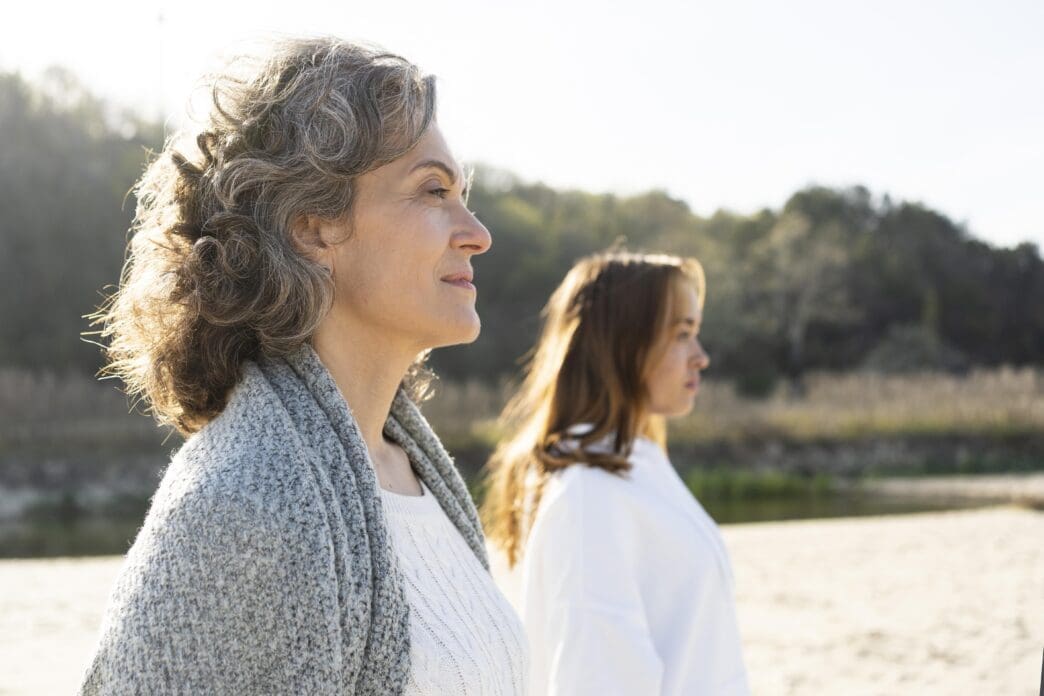Ever find yourself sipping coffee at dawn, questioning why your internal alarm seems set to ‘early bird’ mode as you get older? Waking up early might seem like an inconvenient side effect of aging, but there’s more to this phenomenon than meets the eye.
In this article, we’ll unravel the mystery of why sleep patterns shift as we age. From brain responses to light perception, we’ll explore the factors at play and share tips on how you might catch a few extra winks.
As the Clock Ticks: Internal Changes with Age
Older folks often greet the day before the sun does, a common quirk that stems from the aging process itself. As we age, both our bodies and brains undergo changes that tweak our natural sleep cycles. It’s all linked, as nothing changes in isolation.
Psychology expert Cindy Lustig explains, “Like most things that change with age, there’s not just one reason, and they are all interconnected.” These interconnected changes affect the way we experience time, especially when it comes to sleep.
Brain’s Slow Response: A Sign of the Times
Our brain becomes a little less sharp with the passing years, and its ability to signal when it’s time to sleep or wake starts to fade. Inputs like meals, sunshine, and even social interactions help us sense the day’s flow.
According to Dr. Sairam Parthasarathy, these inputs or ‘time givers’ are less effective in an aging brain. So, while dinner alerts the brain of bedtime for younger people, older folks may miss this cue, feeling sleepy sooner.
The nerves, just like the brain, aren’t as responsive to these ‘time cues’ either. This helps explain why some grandparents fall asleep during the evening news, while their grandkids are still wide awake.
Blame It on the Light: Vision and Sleep
Aging also dims the light stimulus our brain receives, disrupting our sleep patterns too.
Cataracts, a common aging issue affecting over half of seniors by 80, worsen this as they hinder the evening light entering the eyes.
Fewer light cues expedite melatonin production, a hormone responsible for sleep, signaling it’s bedtime earlier than it actually is.
Brighten Your Nights: Tips for Better Sleep
There’s hope for night owls trapped in the bodies of early risers. Dr. Parthasarathy suggests resisting the common anti-screen advice by embracing evening light exposure.
Consider a bright walk outdoors before sunset, or relax with a book on a light-emitting device. Artificial bright lights can send your brain the right signals, delaying melatonin production.
Timing is key; try this routine 30-60 minutes before sunset to see what works best for your sleep rhythms. Consistent light exposure might just shift your internal clock.
Understanding the Shift: A New Perspective
The shift in sleep timing with age is more than just a nuisance—it’s a new perspective on how we experience time as we age. As Dr. Parthasarathy points out, it’s a blend of physiological and environmental factors. Although these changes can be challenging, an informed approach can help one adapt and maintain a satisfying sleep schedule.
Taking Control: Reclaiming Your Sleep
By understanding the why and how of these changes, older adults can take steps to improve their sleep quality.
A proactive approach can aid in adapting to a new rhythm. While aging is inevitable, the right habits can ensure you rest easy.
From altering light exposure to careful lifestyle choices, adjusting to your body’s new clock can help you avoid waking up with the roosters.
Living with the Change: Adapting to New Rhythms
Your mid-life sleep shift doesn’t have to mean discomfort. Instead, see it as just another stage to adapt to.
Explore light therapy, exercise, and routine adjustments as ways to find your cozy corner in the circle of life.
Wrap-up: Embrace the Early Bird Within
Change can be tough, but it’s also a part of life, and understanding why you’re waking up early is the first step towards adjusting comfortably.
In the end, accepting these changes without resisting too much can lead to a better quality of life. Rest well, knowing it’s just your body’s way of aging boldly.







